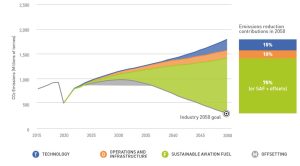The EU is committed to reducing greenhouse gas emissions by 80-95% from 1990 to 2050. A new direction is being set in its carbon emission ambitions providing more guarantees and greater certainty for investors, governments, and citizens. At the core, however, is the effort to achieve a competitive low-carbon economy by 2050, while ensuring security of energy supply. But exclusions from carbon emissions are possible. Therefore, full implementation of the existing energy strategy of 2020 is required, while special emphasis is given to energy efficiency especially in new and old buildings, transportation, products and appliances. Renewable energy sources can ensure up to 30% of total energy consumption in the EU by 2030. Higher public and private investment and technological innovation are also needed to make low-carbon energy commercially viable. Nevertheless, replacing coal and oil with gas can reduce emissions with existing technologies by at least 2030 or even 2035, and energy prices must reflect real costs, especially when new investments occur. In conclusion, it is necessary to develop new energy infrastructure and storage facilities within the EU and in neighboring countries, while the EU needs to adopt a broader and more coordinated approach to international energy relations and actions to tackle climate change.

Πηγή: EUR-lex




